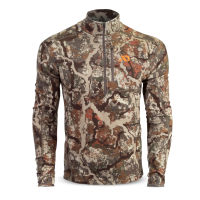
I still have three buck tags burning a hole in my pocket from last season. For most hunters, unfilled licenses end up in the garbage. These folks curse their bad luck. They wallow in sorrow. They try to move on. But this achieves nothing.
In my mind, the best thing to do with uncut tags is to make tag soup. The trick is a matter of flipping your perspective on the past season and learning from it. Then you’ll be able to turn this winter’s tag soup into next winter’s venison stew.
Perspective
It’s been proven across many disciplines that struggle and failure, if addressed properly, can actually lead to future success. This concept is known as adversarial growth, and tag soup offers such an opportunity.
“The struggle against an obstacle inevitably propels the fighter to a new level of functioning,” Ryan Holiday writes in “The Obstacle is the Way.” “The extent of the struggle determines the extent of the growth. The obstacle is an advantage, not adversity. The enemy is any perception that prevents us from seeing this.”
The challenges of the previous season, and all those intact tags, represent the obstacle. How we move forward from them determines just how much we’ll grow and how likely it is that we’ll restock our freezer next year.
Debrief
It helps to first clearly identify what happened last season. How can we learn from those unfilled tags?
Step one is to perform a post-season debrief, a technique I employ each winter to ensure that my growth as a hunter never falters. A debrief is a structured learning process, popular within the military and business worlds, to evolve plans through the analysis of past actions.
At some point in the weeks following my last hunting season I take a day to consider the previous months of hunting. My goals are simple. I want to identify a handful of things that went right and wrong. I list each on a sheet of paper: good on one side, bad on the other. Recognizing which column everything falls into is an important step, but it’s only the beginning.
According to a Harvard Business Review piece by Doug Sundheim, “More than a casual conversation to discuss what did and didn’t go well, debriefing digs into why things happened and explores implications for the future.”
Why
The next step is an examination of why these good and bad things happened. Think back on each of the outcomes you listed, take a moment to consider all the possible factors behind each, and write down what comes to mind.
I didn’t kill a deer on my public land hunt in North Dakota last year. When I look back on that trip, I can think of numerous factors at play. I got too picky and passed a nice buck, I didn’t give my hunt enough time, I wasn’t aggressive enough with certain set-ups, and I let a few poor hunts affect my morale. I write all of this down on my list.
This process of critical thinking and then writing down the final assessments is particularly effective because of something known as the “generation effect.”
A recent piece from Forbes explains, “Neuropsychologists have identified the ‘generation effect’ which basically says individuals demonstrate better memory for material they’ve generated themselves than for material they’ve merely read.”
We need these lessons to stick.
Action
It’s important to learn from mistakes, or unfilled tags, but it’s equally important to not dwell on them. What’s done is done. Learn from it and then take action.
Now that we’ve analyzed the past, identified shortcomings, and written all of this down, it’s time to plan next steps. Look back at that list and choose several mistakes or challenges which can be addressed this year. Don’t try to tackle it all; that’s setting yourself up for failure. Rather, choose just a few actionable steps you can take in the coming months and focus on nailing them. Doing a few things well is better than doing a lot half-assed.
Fun
This might sound like a lot of work, and when you end a season with three unfilled tags, it is. But, for as much thought and work as we put into planning hunts, it seems a waste to not put a little effort on the back end to ensure we learn something from them.
Ultimately though, all of this is moot if you’re not having fun. So, squeeze every last lesson you can out of those unfilled tags, but don’t forget all the smells, sights, sounds, and smiles that you experienced along the way. Like the zest from an orange or a splash of spirits, you’d be amazed how far a little bit of joy can take you in the pursuit of a filled tag.






Conversation